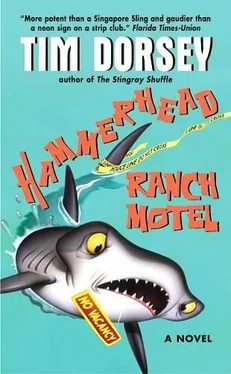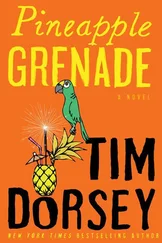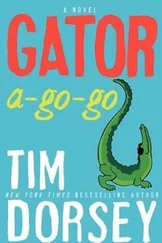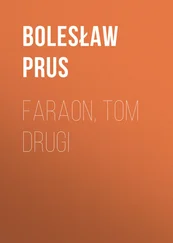Both crews watched as the airman whispered something to Marilyn, who continued staring into the jukebox. He leaned a second time and whispered something else. Without warning, Marilyn had him by the forearm, with leverage behind his elbow, and smashed his face into the front of the jukebox.
“Bitch!” the airman shouted from the dusty floor.
Both crews sprang out of their chairs. Ex-Lieutenant Colonel Barnes grabbed a whiskey bottle by the neck and smashed it against the bar, cutting tendons in his favorite hand.
Suddenly, the air base’s claxons sounded, and Montana ’s crew was all business. They grabbed their gear and sprinted in formation across the tarmac. The wheels of the Hercules were off the runway in eight minutes.
Four time zones ahead, Hurricane Rolando-berto began to sputter. The cooler waters of the mid-Atlantic sapped its strength, but the National Hurricane Center wanted visual reconnaissance before they downgraded it. It did a loop-de-loop more than a thousand miles due east of Montserrat and languished in random, constantly changing directions, its tracking chart looking like someone with DTs got hold of an Etch A Sketch.
Weather officer “Tiny” Baxter bandaged the ex-lieutenant colonel’s damaged hand. Montana took a wide swing at twenty thousand feet around the storm system. Miami was right, he thought, no longer a defined eye. It was becoming completely unorganized. Milton “Bananas” Foster radioed the report back to Florida; then he began screaming “Mayday!” until Barnes wrestled the microphone from him.
Armed with the report, the books at the National Hurricane Center were officially closed on Rolando-berto.
B ack in Aristotle “Art” Tweed’s hometown of Montgomery, Alabama, lived a man named Paul.
Paul was passive.
He was built for it. At five foot four, he never weighed more than a buck-ten-a small, rumpled man in a similar suit. He had thin gray hair that he kept covered with a black fedora, and his voice was hesitant, barely above whisper. Paul’s was the soft face of the full-time victim. All his features were on the small side, and the fifty-eight years of aging did not etch harsh lines and cracks, but gentle folds. Pink webs of capillaries and other blood vessels were visible on his cheeks and chin. His complexion was extra pale, not quite sickly, but you wouldn’t be surprised if he fainted at any moment.
Paul was a nice guy, to a fault. He was a shy, considerate, deferential, rule-following worrier. He was worried about lawsuits and IRS audits and madmen. He drove slow in the right lane, never took a pen from work, ate extra fiber and overfed parking meters. He was obsequious to telephone solicitors.
When Paul walked by, people thought: The meek shall inherit the earth, but only if their parents were ruthless bastards.
Paul had worked the past twenty-three years as a claims adjuster at Fidelity Insurance, which was trying to cheat on Paul. Even with paltry two percent annual raises, Paul’s salary had grown to a decent level, and Fidelity wanted to replace him with a younger, cheaper worker.
They gave Paul a six-month buyout, which killed his pension in the fine print. Fidelity didn’t mention that the buyout put the company on dicey legal ground and he had every legal right to refuse, which most of his co-workers did. The gracious offer was designed to take advantage of people like Paul, who rolled over on command.
Paul soon found the six-month buyout was based not on his current salary, but on a mathematically suspect twenty-three-year index, and in today’s dollars Paul received the equivalent of two paychecks. He went to work selling shoes at the Mega Mall.
Paul’s wife was not passive. She was a thirty-six-year-old loud bottle blonde with qualified good looks, possibly sensual, but not elegant. Put it this way: She’d be the best-looking woman you could expect to find at ten A.M. in a bar, which was where she went every day after Paul left for work.
They were newlyweds, and they hadn’t had sex since the wedding night, which she only did for tax reasons.
She married Paul because he owned his house outright, and her lawyer/lover estimated the shortest possible time she had to stay married to Paul to have a realistic legal shot at getting half. It was a modestly priced place when Paul purchased it in the sixties, but the area had become exclusive Cloverdale, and the house had appreciated wildly.
On the first day Paul’s wife was in the eligibility zone for a fifty-fifty split, she asked for a divorce, and for the first time in memory, Paul said no.
On the second day, Paul came home and found her naked on the dining-room table, her lawyer riding herd. “Well, if it isn’t Mr. I-won’t-give-my-wife-a-divorce. How was work today, honey?”
She got her divorce.
Paul was forced to sell the house and move into a cramped apartment on the Atlanta Highway, closer to the shoe store.
Since he was a teen, Paul found refuge during difficult times in the pages of hard-boiled mystery novels. He read Dashiell Hammett, Raymond Chandler and Mickey Spillane. He watched Robert Mitchum on the big screen. A private detective-it was all he ever wanted to be. He fancied his life a dog-eared twenty-five-cent paperback, a dame, a shot of bourbon and no regrets. But he never followed his passion because he found out it might involve confrontation.
After the divorce, he began plowing through Philip Marlowe and Mike Hammer. He drove to the shoe store imagining he was cruising through the City of Angels in the fifties. At work, he pretended every woman customer was a floozy with a hard-luck story who only needed a good slapping.
During his third Monday on the job, Paul was lacing up oxfords with a gritty, hard-boiled savoir faire. Three truants ran through the shoe store, grabbed the left oxford and played keep-away from Paul. Paul repeatedly jumped in the air, trying to grab the shoe the youths held over their heads. “C’mon, guys!”
The youths grew bored and shoved Paul into a promotional pyramid, and he went sprawling on the floor in an avalanche of Hush Puppies. Even his customers laughed. He’d had it. If life was going to kick him in the teeth anyway, he might as well be doing what he loved.
Paul dipped into his proceeds from the sale of his house. He hung out a shingle and had his name painted in gold block letters on the window of his office door. His enthusiasm for the job started paying off in any case that had no possibility of human contact. Tracking lost assets, researching ancestry for probate, taking surveillance photographs of empty buildings. Because Paul was so terrible with people, his other senses began to compensate, and Paul learned he had an almost mystical clairvoyance when it came to inanimate objects. Word got around, and Paul was sought out by law enforcement and the private sector for a specific kind of case. He began making headlines. “Lost Gems Located After Eighty Years,” “Murder Weapon Recovered from Lake,” “Human Skull Found in Victory Garden.”
Paul was patted on the back for his results and then browbeaten over the size of his bill, and his net rates became the cheapest in town. But with each success, Paul became more confident and assertive. A metamorphosis was taking place. Of course in Paul’s case, it was all relative; there could only be so much change.
He became Paul, the Passive-Aggressive Private Eye.
One afternoon in November, Paul was sitting in his office with his feet up on the desk, asking questions of one of those large novelty eight balls that tell fortunes. An answer floated up in the ball’s liquid window. “Fat chance.” The phone rang.
It flustered Paul and he threw the eight ball over his shoulder and out the third-floor window. He grabbed the receiver.
A t four-oh-five on a cool fall afternoon, the public information officer of the Montgomery, Alabama, Police Department called the assignment editors of the collected capital press corps. He announced a “walkout.” A walkout was a staged event where a police department assembles reporters and walks a suspect out in front of the cameras, at the optimum photographic angle and light, just in time to lead the six or eleven o’clock broadcasts. Reporters are supposed to yell, “Why’d ya do it?!”
Читать дальше











